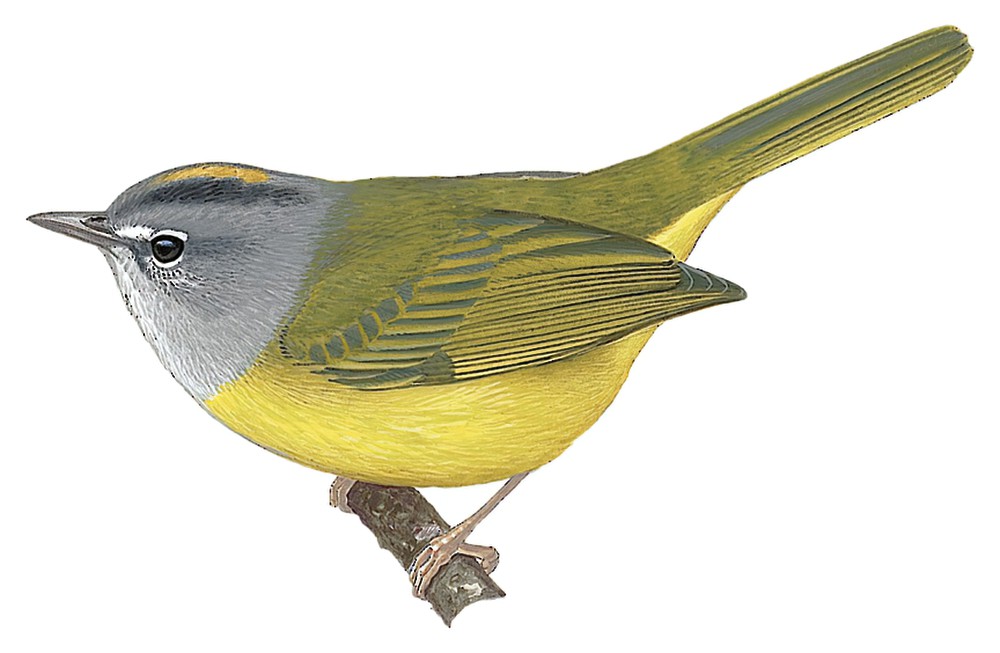White-lored Warbler / Myiothlypis conspicillata

White-lored Warbler
SCI Name:
Protonym: Basileuterus conspicillatus Ibis p.117
Taxonomy: Passeriformes / Parulidae / Myiothlypis
Taxonomy Code: whlwar1
Type Locality: San Jose, Sierra Nevada de Santa Marta, Colombia.
Author: Salvin & Godman
Publish Year: 1880
IUCN Status: Near Threatened
DEFINITIONS
MYIOTHLYPIS
(Parulidae; Ϯ Black-crested Warbler M. nigrocristata) Gr. μυια muia, μυιας muias fly; θλυπις thlupis unidentified small bird, perhaps some sort of finch or warbler. In ornithology thlypis signifies either a thin-billed tanager or, as in this case, a parulid warbler. "*659. Myiothlypis, Caban. 1850. (Trichas, p. Gr.) America mer. 2. 1. TRICHAS nigricristatus, Lafr. (Setophaga! nigriceps, Licht.) Rev. Zool. 1840. p. 230. ex Bogota. 2. TRICHAS luteo-viridis, Bp. ex Bog. Laete viridis: subtus, cum superciliis antice, luteus. An praecedentis faemina?" (Bonaparte 1850); "Gen. MYIOTHLYPIS nov. gen. *) Fliegen-Waldsänger. 121. 1. M. nigrocristata Nob. — Trichas nigrocristatus Lafr. Rev. Zool. 1840. pag. 230. ... *) Von μυια, Fliege und θλυπις nom. prop. Der in seinem ganzen Verlaufe niedergedrückte fast ganz geradfirstige Schnabel rechtfertigt die generische Trennung von Geothlypis. Bei G. stragulata [= Myiothlypis rivularis] findet sich zwar schon ein merklich breiter, von der typischen Form abweichender Schnabel, jedoch ist derselbe immer noch nach der Spitze hin seitlich zusammengedrückt und mit stärker gebogener Firste." (Cabanis 1853); "Myiothlypis Bonaparte, Consp. Gen. Av., 1, (2), p. 311, end of 1850—type, by subs. desig. (Cabanis, Mus. Hein., 1, p. 17, Oct., 1851 [= 1853]), Trichas nigro-cristatus Lafresnaye." (Hellmayr 1935, XIII, 476).
Synon. Phaeothlypis.
conspicillata / conspicillatum / conspicillatus
Mod. L. conspicillatus spectacled, with conspicuous eye-markings < L. conspicillum place to look from < conspicere to behold.
UPPERCASE: current genus
Uppercase first letter: generic synonym
● and ● See: generic homonyms
lowercase: species and subspecies
●: early names, variants, mispellings
‡: extinct
†: type species
Gr.: ancient Greek
L.: Latin
<: derived from
syn: synonym of
/: separates historical and modern geographic names
ex: based on
TL: type locality
OD: original diagnosis (genus) or original description (species)












